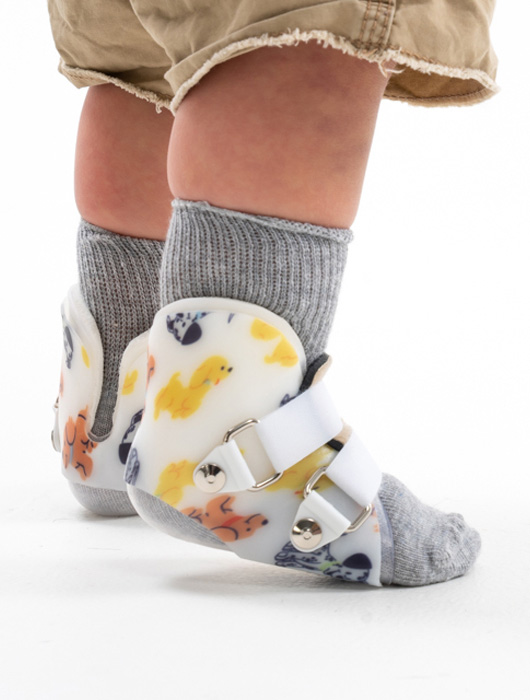31
Jan
2018
7 Misconceptions About Hypotonia
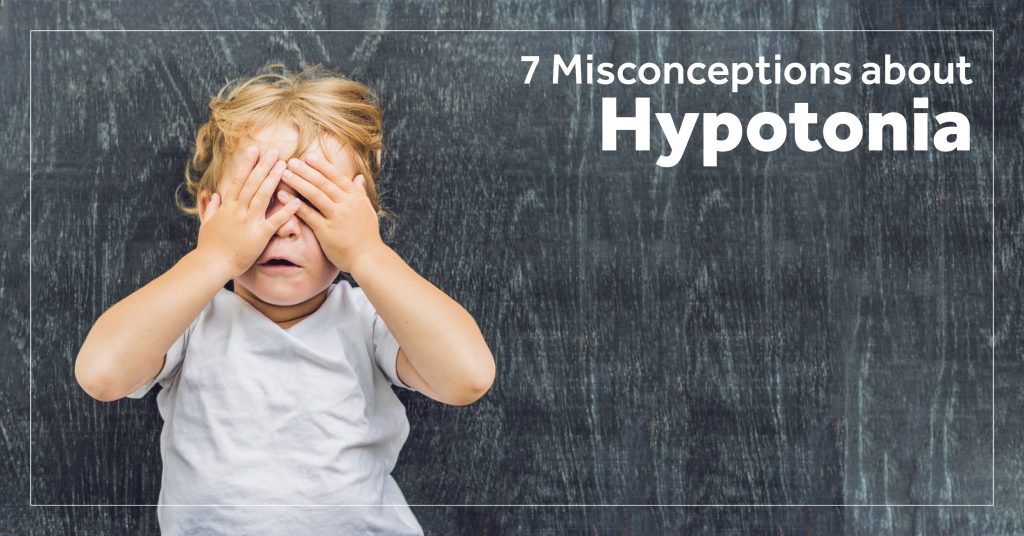
Hypotonia is complicated.
Anyone who’s tried explaining it to friends and family knows that’s true. And as soon as that word is spoken, it often leads to more questions than answers.
What are the symptoms?
Does hypotonia go away?
So it’s no surprise that misconceptions take root. Here are seven of the most common:
Kids With Hypotonia Just Aren’t Trying
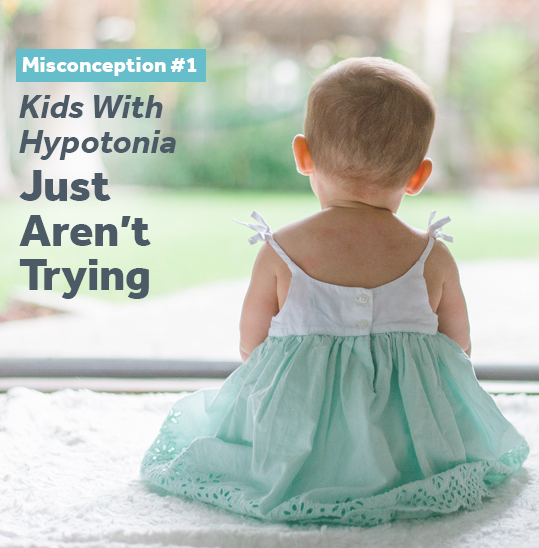
Hardheaded. Lazy. Stubborn. Words like these don’t take reality into account. Your child is a FIGHTER. Just because he or she doesn’t follow a specific timeline doesn’t mean huge strides aren’t being made. Throw out the unrealistic expectations. Enjoy the inchstones.
Kids With Hypotonia Are Weak
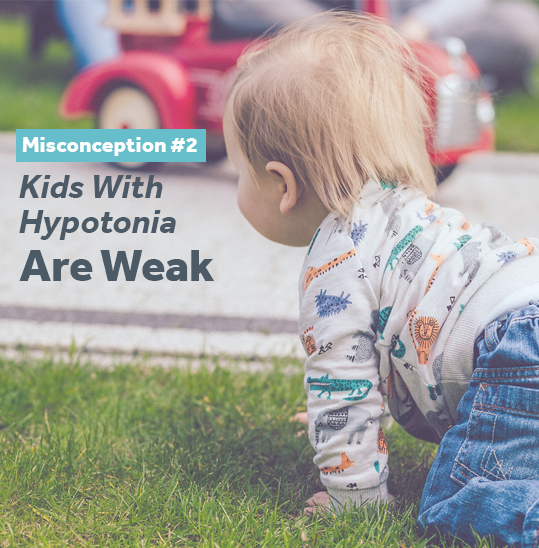
It’s easy to confuse muscle tone with muscle weakness. But they’re not the same thing. Kids with hypotonia can actually be very strong. Low tone refers to a decreased level of tension in the muscles while at rest. Basically, they’re too relaxed. And this can make everyday movements that we take for granted extra difficult.
Kids With Hypotonia Will Outgrow It
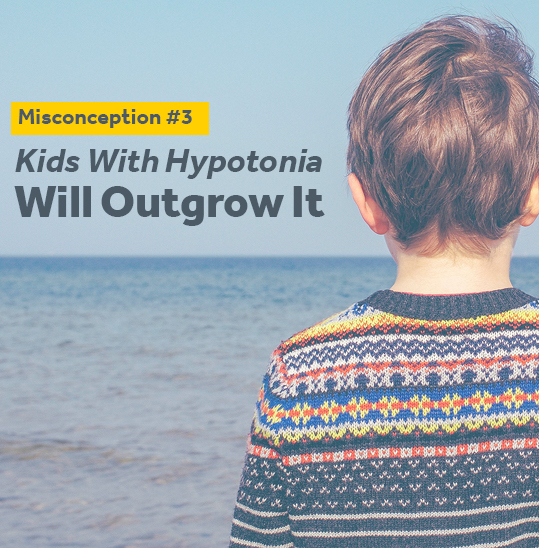
Seeing your child walk seems to suggest that low tone is in the past. It’s not. Muscles can get stronger or weaker, but the tone doesn’t really change. Kids with hypotonia become adults with hypotonia. Along the way, they’ve simply learned how to compensate for their limitations. But without proper hypotonia treatment, poor alignment and other long-term problems can develop.
Kids With Hypotonia Are Lazy
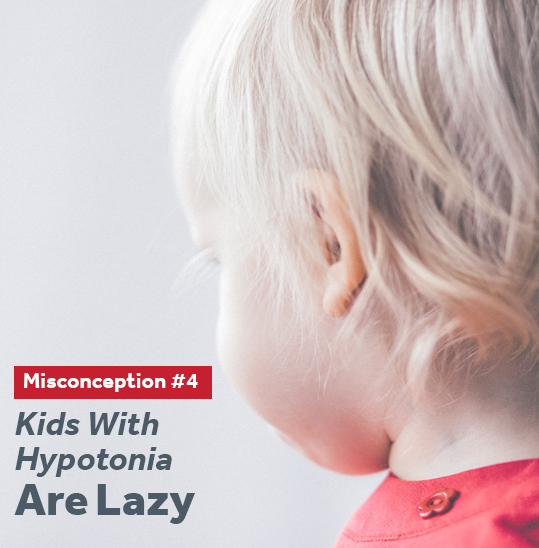
Hypotonia is exhausting. That’s because low tone muscles work overtime just to keep up. Think of it as having to get up off the couch over and over and over again. Sometimes extra breaks, accommodations, and stroller rides are just necessary.
Kids With Hypotonia Have Their Diagnosis
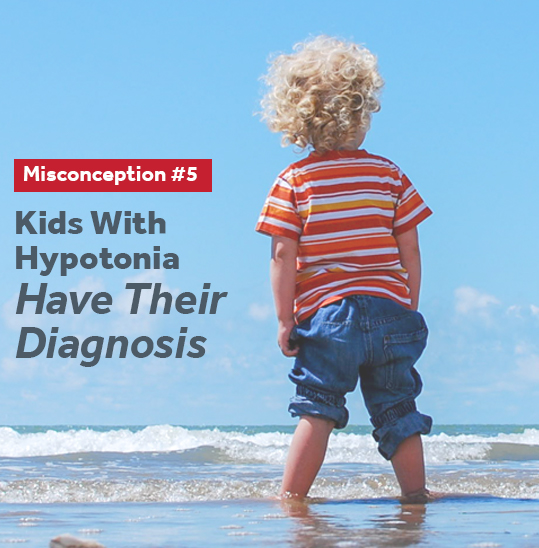
This can get confusing but think of low tone as a symptom instead of a cause. It’s the runny nose, not the common cold. Unless your child has benign congenital hypotonia, something else is responsible for the decreased muscle tone. Down syndrome, cerebral palsy, and genetic disorders are all examples. Finding the root cause isn’t guaranteed, but it can help shape your child’s treatment.
Kids With Hypotonia Will Never [fill in the blank]
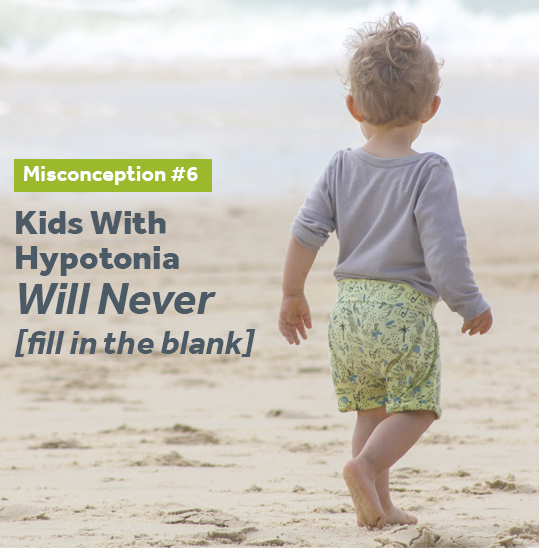
As you watch your child struggle to lift his or her head, milestones like walking, running, and having a career seem impossible. Stay strong. Childhood obstacles don’t necessarily dictate the future. Of course, nothing is guaranteed. And the severity can vary greatly. But with persistence and the right treatment, chances are your child will soar.
Kids With Hypotonia Don’t Need Help
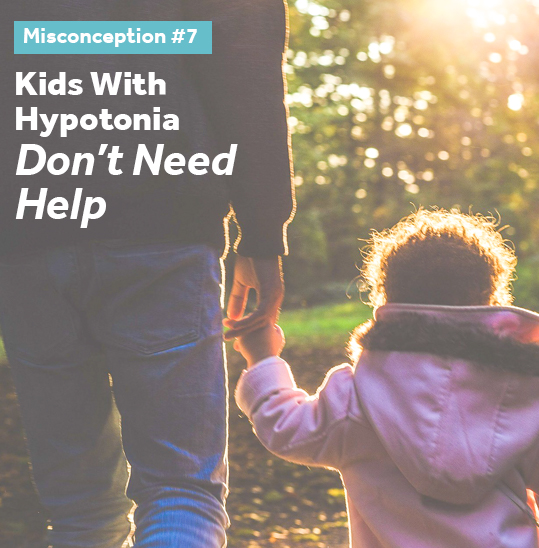
There are late bloomers and then there are kids held back by physical limitations. There’s a difference. You’re in no rush to slap labels on your child. And the endless therapy appointments were never part of the plan. But ignoring the obstacles doesn’t make them go away. Getting support at a young age is the best way to help your little one thrive.
To learn more about hypotonia treatment options, such as Surestep’s innovative products, talk to your pediatrician or physical therapist.
Does your child need SMOs? Ask yourself these 7 questions.
